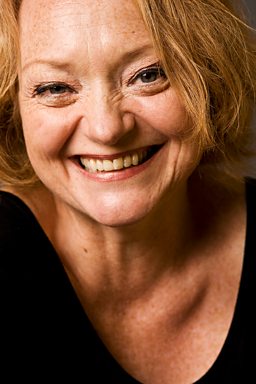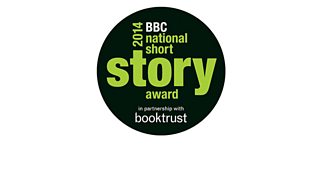Why short stories are like great paintings
16 September 2014
Ahead of the announcement of this year's shortlist for the BBC National Short Story Award, writer and theatre-maker STELLA DUFFY writes for BBC Arts on the importance of the short story.
Goldilocks is a short story, Leda and the Swan is a short story, Ode to Billy Joe is a short story. Every culture has its version of the bedtime story, the nursery rhyme, the fairytale, the folk-song. There isn't a human grouping in the world that doesn’t have a creation myth of some sort. And, usually, these take the form of short stories.
It is not only the word count that must be kept down – but the writer's ego as well
We learn them as children and we take them in as a way of telling who we are, and where we fit in the world. We love that they can be told in one sitting, that they show us a little of ourselves and a sliver of what else we might be if the door were opened a crack further, if we dare to look under the bed, turn out the light.
While it's interesting to note how often short stories are turned into films (so much less to leave out than with a novel adaptation), the neatest analogy for the short story is a great painting, a perfect photograph. The single image that allows the viewer in, not just to see what is there, within the frame, but to dream into what has not been painted, what happens to the subject of the photograph next, what came before.
Unlike the majority of novels – and certainly the traditional well-made novel with beginning, middle, end, the tyranny of chronology – the short story has a freedom to take one moment and explode it.
This freedom however, brings real constraints for the writer. Useful constraints. Yes you can go anywhere, do anything, write in a constant staccato of first person inner monologue or intimately describe a scene with never an exchange between characters, but the story is too short to permit flabbiness, too exposed to allow the reader to skip a page or two of excessive description. It is not only the word count that must be kept down – but the writer's ego as well.
For the writer, the short story is an exercise in both letting go and restraint; can I take this one thing and mine it for more, and in doing so can I use only what is vital? It's not easy, but that's why we like it. And as readers we can feel an effort has been made on our behalf, we sense the craft involved in keeping it tight, shorter than a novel, longer than a poem, just right.
The other reason writers love short stories is in the title. If writing a novel takes a year or two or more – even the fastest writers need a few months – then there is a real pleasure in creating something that only takes a day, a week, a few weeks. We can hold it in our minds, whole. And, hopefully, we make it good enough for the reader to hold it whole as well.
It's a different transaction to that of novel writing, not better or worse, but valuable for the difference.
Stella Duffy is a writer and theatre maker, co-director and founder of Fun Palaces, taking place across the UK 4-5 October, 2014. Her short story collection Everything is Moving, Everything is Joined, is published by Salt.
The shortlist for the BBC National Short Story Award in partnership with Booktrust is announced on Radio 4's Front Row, on Wednesday 17 September 2014.

-
![]()
History of the BBC National Short Story Award
Read more about the history of the NSSA ahead of the 2014 shortlist announcement on Radio 4's Front Row.

